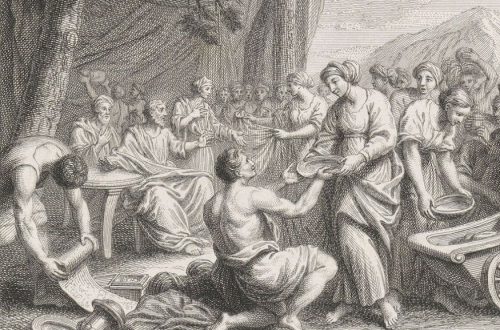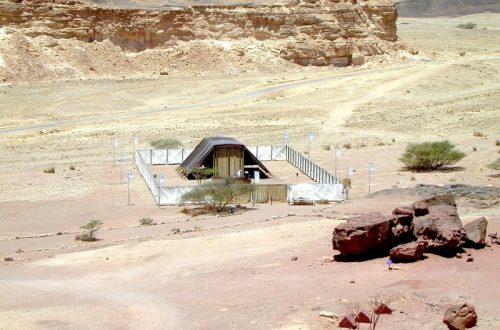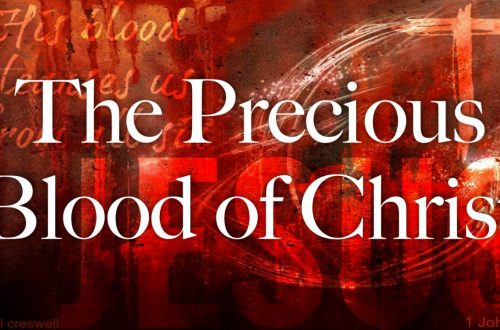Christ Only – And Him Crucified
Leader Formation Blog
Today you will notice that we have a new title for our blog. We have decided to focus on the solution for leadership rather than the problem of leadership in our new blog name.
Here is this week's blog post:
Christ Only—and Him Crucified
After Rome Corinth was one of the top cities in the Roman Empire. It was a major crossroads because virtually nothing moved in any direction across the realm without passing through Corinth.
The capital of the Roman province of Achaia in southern Greece, Corinth was strategically located on the Isthmus of Corinth, and that made it an east-west and north-south center of the Empire. Anything or anyone coming from Rome to the east or going to Rome from the west had to pass through Corinth, one of the safest ports in the western Mediterranean. Because it was the southernmost major commercial center in Greece, all goods and people headed north or coming south passed through through Corinth.
Corinth, however, was far more than a commercial center. Because of its location and prosperity, it was a political center, essential to the peace and harmony of Rome. It was also culturally critical as people from all over the Roman world passed through Corinth, and many settled in the city.
Finally Corinth was a spiritual center, a city that worshipped many gods from Apollo to Poseidon to Aphrodite, known among the Romans as Venus, the goddess of love, beauty, and procreation. Eighteen hundred feet above the city on the acropolis, the temple of Aphrodite was the landmark of Corinth and every night scores of sacred prostitutes walked down from the temple into the city to practice their immoral worship in the name of their goddess.
Corinth was a power center, a city that had power and respected only power. Weakness was not welcome in that place. It has been described as the New York, Los Angeles and Las Vegas of its day. The city housed sailors and soldiers, statesmen, businessmen, and craftsmen, priests and prostitutes—and even an apostle.
One day in AD 50 a small, unimpressive Jew—often a hated and rejected people among the Romans—entered Corinth in fear and trembling. He was at the end of a very difficult journey. Beaten and arrested in Philippi, hounded in Berea, forced out in Thessalonica, and belittled in Athens, he entered Corinth to make one last effort in Greece. If that failed he would go on back to his home base in Antioch. Originally his name was Saul, hardly appropriate, since his ancient ancestor stood head and shoulders above all others, but this Saul was both unimposing and unimpressive, and he proclaimed a message about a crucified carpenter named Jesus, hardly something to get the attention of the Corinthians. Now called Paul (meaning small) following an encounter with Jesus, he had every reason to enter Corinth with fear and trembling. What could he bring to this great power center?
But let me ask you, if you were Paul entering powerful Corinth with its great wealth, its political influence, its cultural diversity, and its love of pleasure and the flesh, what strategy would you employ to reach this power-driven city? How would you prove that the power you have is greater than the power they have?
Would you appeal to your position as a Roman citizen? Would you appeal to your PhD level education from Jerusalem? Would you appeal to the sophistication of your vast knowledge of the Roman Empire gathered from your travel through much of it? Though you don’t look it, you’re as sophisticated as anyone in Corinth, speaking multiple languages, calling in many ports, having seen as much as most Corinthians had seen. What power would you use to overcome the raw and overwhelming power of Corinthian culture?
If you’re Paul you make one decision and never deviate from it. “For I determined not to know anything among you except Jesus Christ and Him crucified.” He chose a cross, the most despised symbol in ancient Rome, to break through the power of Corinth! What can a cross do against a Roman cohort? Amazing. Paul chose to challenge the power of Corinth with the power of weakness. What could be weaker than a man on a cross? Why? That doesn’t make sense. Perhaps because he knew the power of weakness is far more powerful than the weakness of power that we have chosen to confront the modern Corinth in which we live. Think about it.
About: The Leader Formation Blog is focused on changing the way leaders are formed from what they do with their hands to what God is doing in their hearts.
www.leaderformation.org
Calling Leaders to Serve with Altared Hearts





